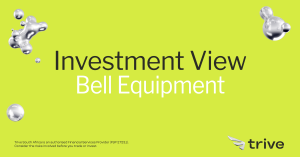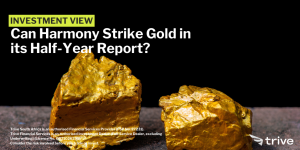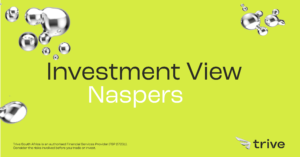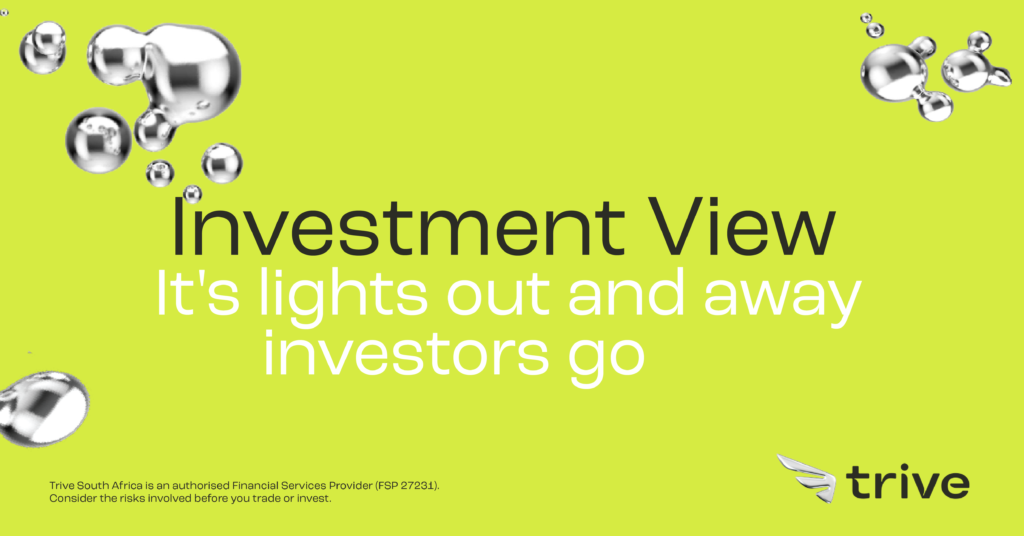
With the Netflix series Drive to Survive heading our way this weekend, we thought we would look at some of the most notable F1 teams and the automaker power units that back them.
In the world of racing, it’s all about power. In the finance world, it’s all about performance, so by looking at the chart below of the three main engine supplier’s share prices, Ferrari (Red), Mercedes (Silver) and Volkswagen (Blue), it’s clear who is leading the pack over the last year.

Let’s take a closer look at the 4 automakers and how they have been performing over the last year:
Mercedes-Benz Group AG (XETR: MBG)
The most successful championship-winning team in Formula 1 is expected to stage a comeback this year, and by looking at the German automaker’s share price, it’s also on the rise.
Mercedes’ shareholders will be pleased to see the German automaker’s share price surge 21.5% year-to-date, closing at €74.59 on Tuesday, the 21st of February, 2023. Mercedes’s fans will be hoping for a similar performance from the seven-time world champion, Lewis Hamilton, and teammate George Russell when the Formula 1 season commences. Still, investors will be more than happy to see the automaker’s share price trading at its highest level since last year, February. The world-renowned German automaker reported good results in its 2022 earnings release, reporting a 12% year-over-year increase in revenue and an impressive 35% year-over-year increase in earnings per share (EPS). This saw the share price gap opening at €73.61 on Friday, the 17th of February, 2023. Mercedes Benz also committed to a €4 billion share buyback by 2025, which, according to JPMorgan, is “another important step towards being the most competitive shareholder friendly luxury auto company in the market.” With the giant automaker proposing a dividend of €5.20 per share, 4% up from €5 per share last year, a good season for Mercedes’ F1 team could be the cherry on top of a promising 2023 thus far.
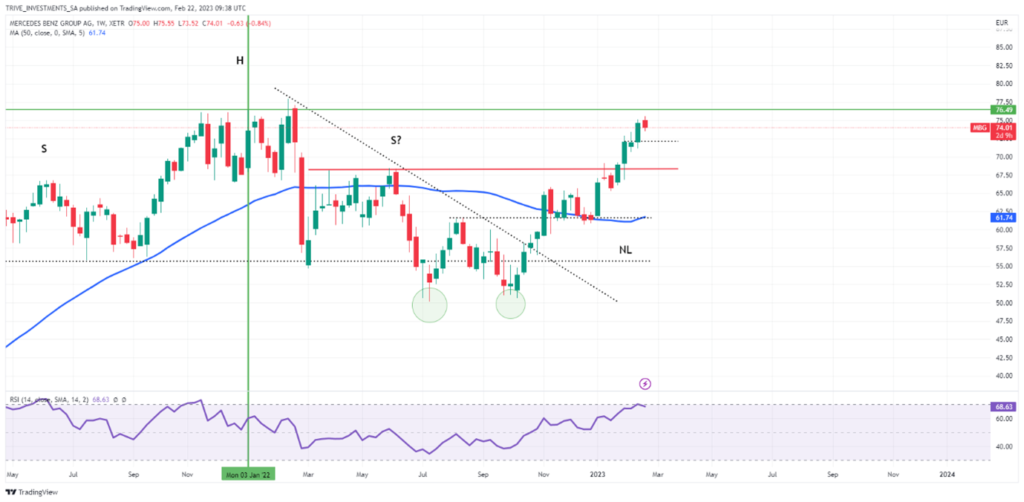
Ferrari N.V (NYSE: RACE)
The prancing horse is the oldest F1 team around and really needs no introduction, and with a new team principle in hand, those tire choices should go down without a hitch. One thing that has not encountered any glitches is Ferrari’s share price, which is racing higher.
Closing at $214.22 on the last trading day of 2022, the prancing horse has seen its share price soar 23% higher year-to-date to close at $262.80 on Tuesday, the 21st of February 2023. With Ferrari CEO Benedetto Vigna reporting “persistently high demand” for the Italian automaker’s sports cars and with an upside surprise on both earnings per share (EPS) and revenue for 2022, Ferrari’s share price gapped higher to open at $265.20 on Thursday, the 2nd of February, significantly higher than the previous day’s closing price of $253.32. Furthermore, Ferrari expects an even more robust year in 2023, supported by increased demand for the Daytona SP3 and the upcoming Purosangue SUV. Seeing that the famous Italian automaker has failed to take home the F1 constructor’s championship since 2008, the Tifosi will be hoping for a stellar 2023 season to wrap up what is expected to be a good year for the prancing horse.
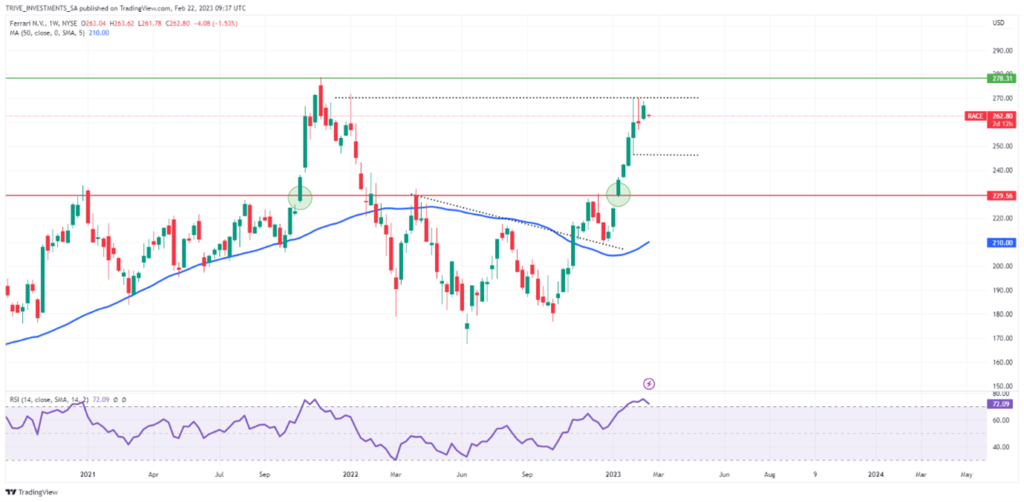
Renault SA (ENXTPA: RNO)
Renault is no stranger to competition and judging by the steep incline of its share price, there could be a lot more in store for the French automaker after the price correction.
The French multinational automobile manufacturer has seen its share price surge to its highest level since March 2021, returning over 30% year-to-date. However, will the automaker’s superior investment performance filter through to its 2023 F1 season with an all-French line-up heading the Alpine F1 team? Renault SA reported group revenue at €46.4 billion for the 2022 financial year, an 11.4% increase from the prior year. However, net income decreased 172% year-over-year, reflecting a net loss for the 2022 financial year, which has seen the share price trend lower since the earnings release.
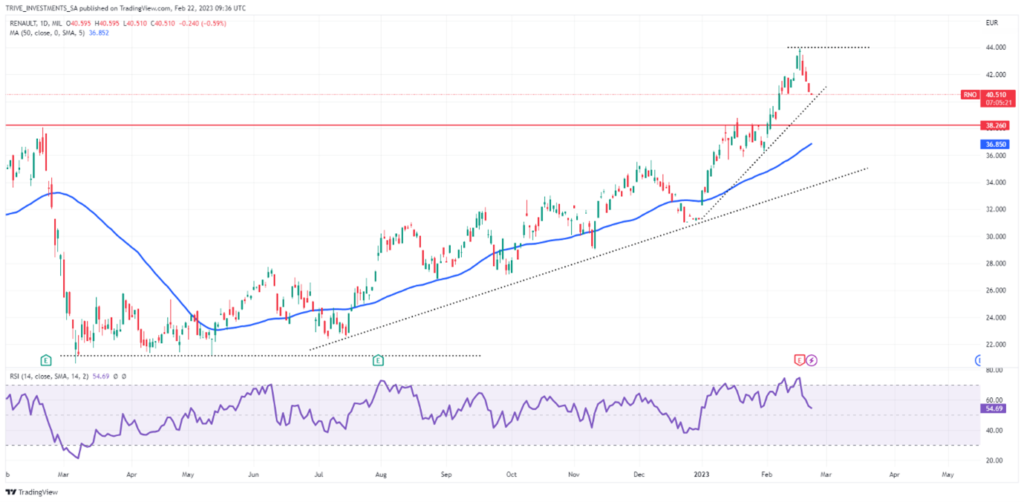
Volkswagen AG (XETRA: VOW)
Volkswagen is taking competition to another level by entering not one but two of its high-performance brands into the Formula One lineup in 2026. Hopefully, Audi and Porsche can perform better than the German company’s share price, which has been in a downtrend for some time now.
Volkswagen Group, a German multinational automotive manufacturer and the largest global car company, has seen its share price trend lower over the past few months. With plans to enter both Porsche and Audi into Formula 1, shareholders will be hoping for the German automaker’s share price to recover somewhat, while Formula 1 fans will be looking to see what value Porsche and Audi can bring to the table in what is regarded as the most competitive motorsport in the world. Volkswagen reported disappointing earnings results for the third quarter of 2022, with earnings per share (EPS) coming in at €3.90, 49% lower than expectations of €7.70, so investors will be hoping for improved results in the next earnings release. The world-renown automaker is “aiming for all-electric sales in 2023 to make up 11% of total sales”. It targets 50% of total sales to be comprised of full-electric sales by 2030, indicating a significant step towards maintaining its position as a primary ESG-compliant automaker.
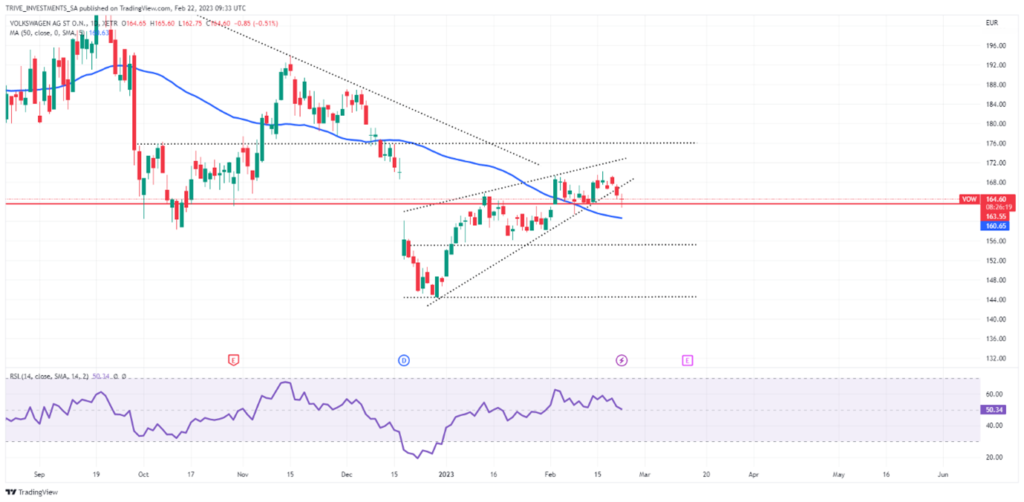
Summary
The race is on to see which automaker will stand on the podium’s top step by the end of the year, which will probably be the most challenging year yet. Global macroeconomics still faces inflationary headwinds and interest rate hurdles that will continue to impact the average consumer. It will be interesting to see how the prestigious auto segments for the major auto manufacturers will grow this year, as the saying goes, “the rich only get richer.”
Sources: Liberty Media, The Formula One Group, Mercedes-Benz Group AG, Ferrari N.V, Renault SA,Volkswagen AG, Bloomberg, Nasdaq, CNBC, TradingView.
Disclaimer: Trive South Africa (Pty) Ltd, Registration number 2005/011130/07, and an Authorised Financial Services Provider in terms of the Financial Advisory and Intermediary Services Act 2002 (FSP No. 27231). Any analysis/data/opinion contained herein are for informational purposes only and should not be considered advice or a recommendation to invest in any security. The content herein was created using proprietary strategies based on parameters that may include price, time, economic events, liquidity, risk, and macro and cyclical analysis. Securities involve a degree of risk and are volatile instruments. Market and economic conditions are subject to sudden change, which may have a material impact on the outcome of financial instruments and may not be suitable for all investors. When trading or investing in securities or alternative products, the value of the product can increase or decrease meaning your investment can increase or decrease in value. Past performance is not an indication of future performance. Trive South Africa (Pty) Ltd, and its employees assume no liability for any loss or damage (direct, indirect, consequential, or inconsequential) that may be suffered from using or relying on the information contained herein. Please consider the risks involved before you trade or invest.


